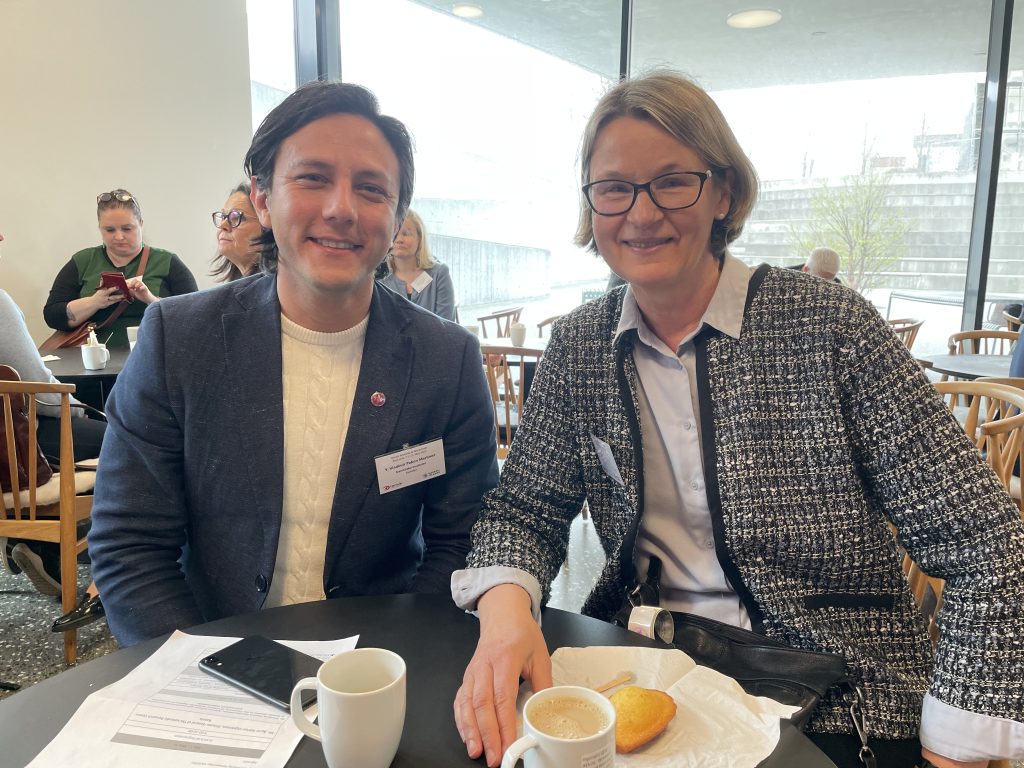Nordic Staff Mobility and Workshops: Supporting International Talent in the Nordic Countries
Nordic Staff Mobility and Workshops: Supporting International Talent in the Nordic Countries took place on 11-12 May 2023, Reykjavik, Iceland. The workshops were arranged by The Icelandic Center for Research (Rannis) and The University of Iceland.
KI was represented by Ulla Tunkara from the International Office and Vladimir Pabón-Martínez from KI Career Service. Vladimir also held a workshop on career support for doctoral students and early career researchers.
Workshops
The 12 parallel workshops were divided into 3 modules:
1) Attracting Talent to the Nordics
2) Career Support
3) Rethinking Researcher Mobility
Internationalization at Universities – challenges and opportunities
The aim of “Internationalization at Universities – challenges and opportunities” was to reflect upon the major challenges of internationalization to us as university employees, as well as from the department, university, and country perspectives. Challenges such as language, cultural differences, legal framework, and political issues were lifted in the lively discussion and shared by all participants. We did not have time to identify the opportunities and to listen to two ongoing projects at the Universities of Umeå and Roskilde, so we will meet again online to continue our discussions.
Working Abroad
The workshop “Working Abroad” run by the universities of Aalto and Bergen covered topics such as remote work, international assignments, security, and employer obligations. Here we have differences in national legislation in the Nordic Countries. Finnish universities, for example, are no longer state-run universities but independent legal entities. Consequently, this might affect to which country the employer is to pay social insurance contributions and from which country the researcher will receive social security benefits when working in another EU country.
Language challenges and opportunities
One thing common to all of us is the need to attract talent from all over the world. English is the working language at research institutions, and it may also be sufficient to use English in everyday life. In the workshop “Language challenges and opportunities” we discussed issues such as how to navigate through the issues of parallel language use and the requirements of the official language of the country, language policies and support. As KI is working on its first language policy, examples from the universities of Faroe Islands and Copenhagen hopefully give some inspiration.
We also need to develop processes for welcoming new international employees and facilitate smooth landings at our universities. Presentations from the university of Eastern Finland and the Norwegian University of Science and Technology gave inspiration on how to work with digital onboarding.
Discussion on PhD education
The workshops were followed by the Staff Exchange session at the University of Iceland. We discussed Strategies for internationalizing PhD education and Career trajectories of international PhD students after graduation. The conditions in the Nordic countries, however, vary a lot in terms of length of the studies (3 to 4 years), tuition fees (none to some) and funding of the studies (university employment to own funding).
Take-home messages
It was so much more effective to meet IRL after the pandemic and build new networks. We share the same challenges and opportunities in many areas. Already, a number of Teams groups have started to find ways to work together and collaborate more among Nordic universities.


0 comments